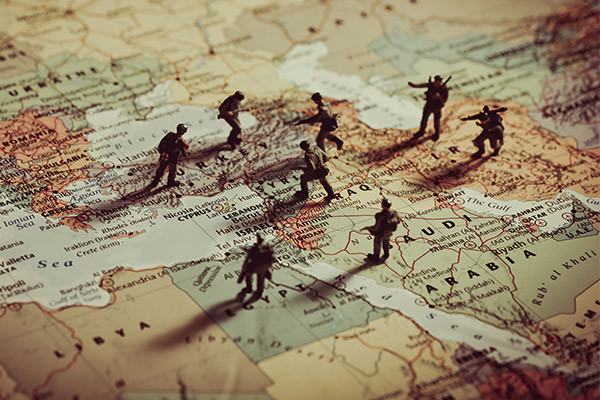Western Recognition of the State of Palestine - The Fall of Israeli Legitimacy and the Rise of the Palestinian Voice
.
- by Hamda AlKindi ,
- Wednesday, 24th September, 2025
Western recognition of the State of Palestine is not a symbolic gesture or a passing diplomatic maneuver, it is a strategic development that reshuffles the deck in the Arab–Israeli conflict. After decades of paying lip service to the “two-state solution” without implementing it, the recent wave of recognitions from the United Kingdom, Canada, Australia, and Portugal, following Spain, Ireland, Norway, and Slovenia, reveals a profound crack in the West’s traditional support for Israel and opens the door to a new phase marked by political and diplomatic pressure through the legitimization of a Palestinian state.
This shift is anything but random, it stems from a complex mix of factors. On one level, images of the war in Gaza and the resulting waves of anger and public sympathy played a decisive role in pushing European parliaments to exert unprecedented pressure on their governments. On another level, several European capitals have sought to loosen American tutelage and craft a more independent and assertive foreign policy toward the conflict. A third dimension is legal and moral, an increasing realization that keeping the two-state solution as a suspended slogan drains the political process of meaning, and that recognizing the Palestinian state is the natural step to correct a historical imbalance.
Although recognition does not grant Palestine full UN membership given a likely U.S. veto, it does elevate its standing as a sovereign state under international law. This development enables the exchange of ambassadors and the opening of diplomatic missions, and it strengthens Ramallah’s capacity to resort to international courts, especially the International Criminal Court, to hold Israel accountable for war crimes. It also opens the door to accession to additional treaties and international organizations. Politically, Western recognition weakens tolerance for Israel’s policies and embarrasses governments that continue to justify their support, signaling the emergence of a growing international isolation around Tel Aviv.
The latest recognitions have created a clear rift within Europe. Countries such as Germany remain cautious, yet they find themselves under mounting pressure as the wave builds, something reflected in Berlin’s vote on 12 September in favor of the New York Declaration on settling the issue and implementing the two-state solution, in a bid to balance its foreign policy between the Palestinians and its historic commitment to Israelis. Regionally, the move was warmly welcomed by the Arab League and the Organization of Islamic Cooperation and was deemed a moral victory that restores momentum to the Palestinian cause in the face of Israel’s far-right. Nevertheless, these recognitions have clear ceilings: the absence of a comprehensive Western consensus due to U.S. opposition, limited immediate impact on halting settlement activity or ending the occupation, and the persistence of internal Palestinian division, which weakens the ability to leverage this shift strategically.
What is unfolding today is not merely a diplomatic turn but a sign of a changing international mood toward Israel and a tangible advance for the Palestinian cause on the legal and political fronts. Recognition alone will not create a state, but it does put the two-state solution back on the table from a stronger position and gives Palestinians a new lever of pressure. The fundamental question remains: will these recognitions remain symbolic entries in the archive of deferred decisions, or will they become an effective political instrument that forces Israel to recalculate and paves the way for the long-awaited, genuine settlement?

Hamda AlKindi
Seinor Researcher

